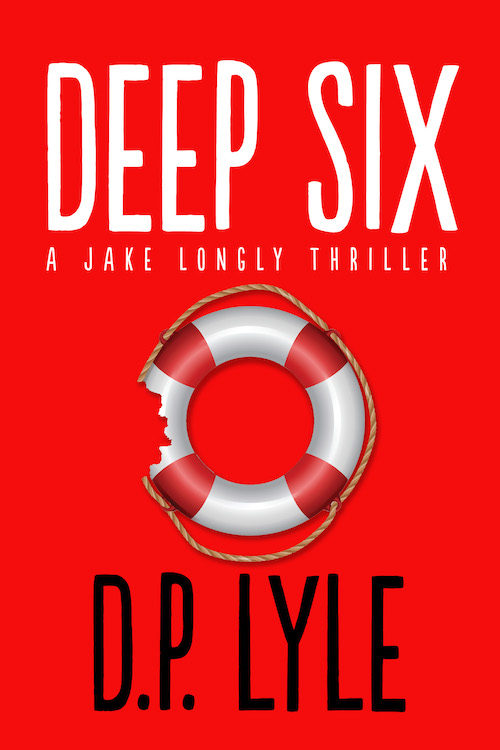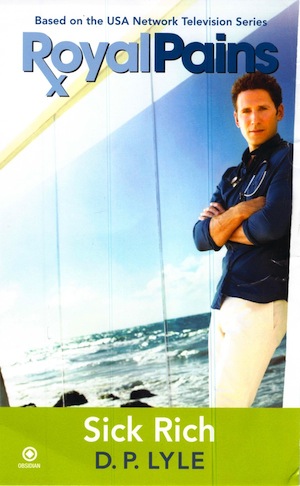Dr. Jan Gurley, a board-certified internist physician, is the only Harvard Medical School graduate to have been awarded a Shoney’s Ten-Step Pin for documented excellence in waitressing. Her training includes years of basic science research in labs (graduating magna cum laude from Harvard), then a residency at UCSF in Internal Medicine, afterwards receiving a Robert Wood Johnson Fellowship (Stanford/UCSF Joint Program) in epidemiology, public health and public policy. Her health/science background covers the vast territory from sub-cell systems, to human studies, to the captivating science of seeing patients one-on-one. She sees patients at a San Francisco clinic for the homeless – and knows more than any other suburban soccer mom about the underside of urban life. Survival sex, prison time, injection drug use, street violence, mental illness, and addictions of all kinds are part of the background fabric of her patients’ lives.

Doc Gurley’s health writing has appeared in Salon, The San Francisco Chronicle, and the Chronicle Sunday magazine, with letters in the Washington Post and UK’s Daily Telegraph. Her research has appeared in academic publications including the New England Journal of Medicine. She is a frequent contributor to the San Francisco Chronicle’s SFGate.
DPL: Did you really win a Shoney’s Ten-Step Pin for excellence in waitressing? How?
JG: Okay, I hate to toot my own horn, but the fact is (blush) yes I did win a Ten Step Pin. And let me tell you, that thing’s frickin’ hard to win. Shoney’s (at least back in my day) used Secret Shoppers – regular customers who secretly rate your every move. That means…how many minutes to the table, whether you smile enough, if you give silverware and water in the right order, how long the food takes, if you return at the right time to ask whether the food is okay…and so on. It’s a random check and you have to get it all perfect (without knowing someone is rating you) to Win The Pin. I’ve often thought (and said) that doctors should have Secret Shopper patients. Would your doctor win a Ten Step Pin?
DPL: Tell us about your clinic in San Francisco. What types of patients do you see there?
JG: Ah. That’s a good question. We see the lost, the broken, the angry, the hurting, the altered, and the desperate. There’s the homeless stereotype we all know – the person muttering under a tent of stiff hair. And there’s the woman padded with four coats who’s been raped on the street three times in the last year. There’s the newly homeless tech programmer living out of a car, applying for jobs and using the exam room sink (you get a glimpse when you open the door) to do a quick sponge bath. There are college students and mechanics and artists who don’t have insurance. There are middle-aged housewives who lost insurance coverage in the divorce. And so many people who cycle in and out, seeing us in-between stints in prison.
DPL: What are the most common drug problems you encounter? Most dangerous?
JG: We’re always aware of our toilet. Patients know the drill too – they’ll tell us if it’s occupied too long, and we bang on the door. Are we just that controlling about sewage? Nope. The sad fact is, it’s all too common to discover someone has used the toilet to shoot up and is now nodding off (if not frankly overdosed) in there. We see IV drug use of all kinds – opiates and stimulants. We see tweaking meth addicts who are vibrating and ready to blow. We see all the complications of drug use – massive abscesses, heart valve infections, overdose, withdrawal, delirium tremens – you name it.
DPL: Have you seen any change in the patterns of drug use in your clinic?
JG: More meth. That’s probably a reflection of the world at large. San Francisco has had the notoriety of being the heroin overdose capital of America for many years. Speedballs seem to be increasing in popularity over the last 5 years – probably in line with the increased meth availability. We also see a hefty trade in prescribed drugs. On the street, oxycontin can sell for a buck a milligram – making a 60 milligram pill a much-desired prescription item. We also have the constant, but relatively low-level, backdrop of crack use – but less (non-crack) cocaine usage than, say, 7 years ago. And we also have the ever-present toll of alcohol abuse – which never seems to get as much press-coverage as other drugs, but certainly commands a large chunk of our population’s drug use.
DPL: You have a book coming out called Dodging Death that’s a humorous take on healthcare advice. Great concept. Tell us about it.
JG: Dodging Death is a book for the lay-person – it’s a user-friendly guide to the kinds of things that Googling your symptoms might miss. Triage is one of the ways internet symptom-searches fail people. For example, Dodging Death is divided into chapters like Things That Can Kill You in 48 hours or Less, Things That Can Kill You in a Week or Less (etc.), as well as a chapter titled Things You Don’t Know You Have (also known as Hypochondriac’s Corner). It’s a book that’s meant to be practical, but it’s also purposely designed to make learning about how to triage symptoms and recognize the odd and rare symptoms fun.
DPL: What’s next for you in the literary world?
JG: Wow. That may be the first time anyone has ever mentioned myself and the word “literary” in the same sentence! Although this is not actually a literary endeavor, I am right now working with a team to create medical iPhone apps – ones you can download on the spot for symptom-specific issues. Our first ones out are meant to be fun and practical, like the Dodging Death concept. The “Party Pack” can be bought individually or as a group – and includes topics like “Passing Out At A Party,” “The Morning After,” and “I’ve Got A Thingie On My Doo-Hickey,” as well as “Do I Need Stitches?” and “It Burns When I Pee.” These apps also can be bought and sent to friends, like greeting cards. There will also be more joyful and interactive apps coming next year focused on long-term health issues like eating better and exercise, etc. – these apps will all incorporate practical approaches from the burgeoning new science of behavior change. Keep an eye out for them – coming soon in the iTunes Store.
Visit Doc Gurley’s Website

























Gary Corby
August 30, 2009 at 5:52 pm
It’s not the most serious question ever, but I just have to ask…wiith the Shoney’s award, does this mean it’s Dr Jan who goes for the coffee at work?
I love the idea of Dodging Death, and deeply admire anyone doing the work you do.
LikeLike
Health Campus
August 31, 2009 at 1:11 am
Some good points raised in that post. Will be back to check for more.
Cheers
LikeLike